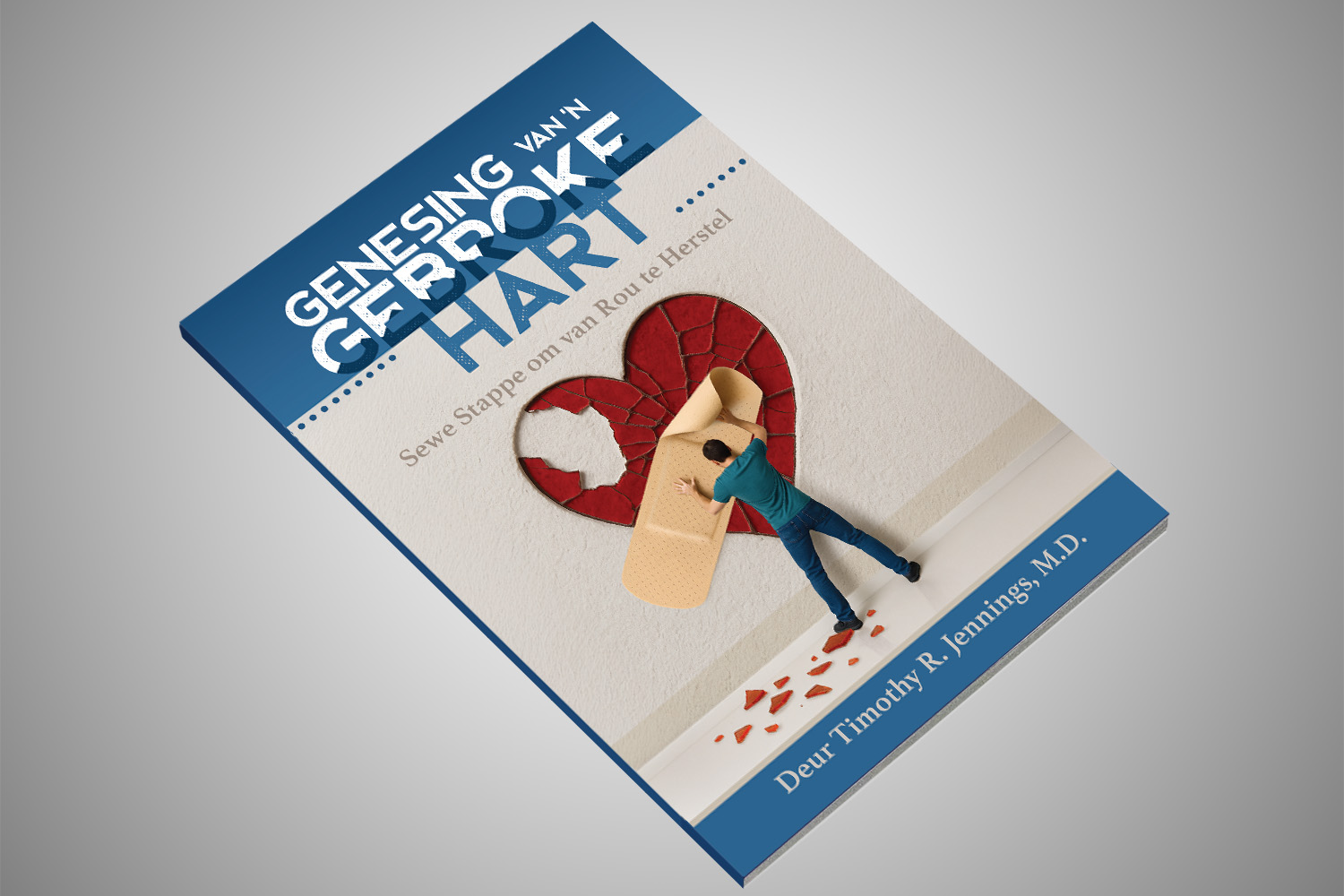As I travel around the country presenting Christian principles for healing the mind there is a question that comes up over and over again. Two weeks ago during The Good News Tour in Collegedale, TN this question was raised.
Last week during a Healing the Mind Seminar in Downers Grove, IL this question was raised. And the question has to do with God inflicting punishment on His disobedient children. The question is never over loving discipline, God acting to save, educate, or redirect. Everyone understands God, in love, does take these actions. No, the confusion arises over God’s role in dealing with the unrepentant, the rebellious, those who persistently reject Him and won’t return to Him.
During The Good News Tour one of the speakers passionately put forth the idea that in order for God to be just He must punish sin and sinners, that God is love, but He is also just. This idea that God’s justice is something other than His love does tremendous damage to the gospel. Justice is based on the governing law. The law of God is the law of love, thus God’s justice is always love. Therefore, His justice could never be heated, angry vengeance. This is a perversion of God’s character. God’s justice is always a manifestation of His love.
Imagine a genuinely loving parent who tells his child to never touch the pesticides in the garage, even warning, “in the day you do you will surely die.” One day the child disobeys the explicit instructions of the parent, that parent’s “law,” and messes with the pesticides even accidentally drinking some. Now, the child, from exposure to this toxin develops leukemia, what does justice require?
Would justice require the parent let the child die, even if the parent had bone marrow which could save the child? Would justice require the parent beat the child, or worse yet kill the child in order to be just, to satisfy the “legal” requirements their broken “law” demanded? What would justice require? What does justice look like when it is based on the law of love? What does love compel the parent to justly do, if the parent is capable? Of course, Save the child! Likewise, God’s justice is all about salvation.
Leukemia is cancer and cancer cells are cells reproducing out of control, no longer operating in harmony with their original programming. In order to save your child without violating the laws of health what needs to happen? The cancer needs to go into remission. The cancerous cells need to remit back to their precancerous healthy state. When this happens life continues without violating the laws of health. Likewise, without the shedding of blood there is no remission of sin. Without the shedding of Christ’s blood sinfulness in mankind could not go into remission. Christ came to heal the race, to place us all back in harmony with God’s law of love!
But what if the child, who so early on disobeyed and who is dying from that terminal disease, now as an adult, refuses the bone marrow transplant, refuses the remedy which would put the cancer into remission? Would justice require the parent to then kill such an unruly, ungrateful child? Then why do so many insist that God must punish sin and sinners, even teaching that God punished His Son in the sinner’s place? Because of three basic misunderstandings:
Misunderstanding 1: God’s Law
God’s law is natural, not imposed. Misunderstanding occurs when people think of God’s law as imposed or as list of rules without inherent consequence externally enforced by God, then as the great law giver, God must act to inflict external penalties upon the breakers of the law in order to be just. Some argue that if God didn’t inflict penalties, then the law would be powerless and therefore useless. But this is a fatal error in understanding God’s law. God’s law is the design law for life. It is the law of love. It emanates from the character of God Himself and is the principle upon which all life is created to operate. It is not imposed or legislated.
For example, the law of gravity is a design law upon which nature is created to operate. If you jump off a building God doesn’t have to inflict a penalty, the penalty is inherent, that is, you will most likely die upon impact with the ground. The laws of health are design laws upon which life is constructed to operate. If you decide to stop eating, drinking, or tie a plastic bag over your head you will violate the laws of nutrition, hydration, or respiration – these are natural laws. God will not have to inflict a penalty upon you. He doesn’t kill you for breaking those laws, the penalty is inherent.
Likewise the law of love is a natural law, the design protocol for life. It is the law of giving, beneficence, the outward flow of goodness to uplift others. All life is created by God to operate on this principle. Violations of this law naturally result in pain, suffering, and death. God doesn’t have to inflict punishment, the punishment is inherent. God has, in actuality, been using His power to hold at bay the consequences, the punishment of sin, giving mankind time to be reconciled back into harmony with Him and the law of love.
Misunderstanding 2: The Nature of Sin
Having misunderstood God’s law quite naturally results in misunderstandings about sin. Sadly, most people think sin is breaking God’s rules and when one breaks God’s rules, well, they get in trouble with the rule maker. The rule maker then has to impose penalties in order to be “just.” But all of this is in error. The truth is that “sin is lawlessness” (1John 3:4), that is, without law, less the law, living outside of the law, in this case the law of love, upon which life was designed to operate. And sin therefore naturally results in death (Romans 6:23, James 1:15). God does not have to inflict death upon people. The penalty is inherent in sin as sin severs one from the circle of life, the law of love which emanates from God.
Misunderstanding 3: The Purpose of the Cross
Having misunderstood the law of God, and thus misunderstood the nature and character of sin, naturally results in misunderstanding the purpose of the Cross. After all, if the law is a legislated list of rules and thus imposed upon God’s creation, and sin is breaking the rules of this law, and the problem with that is that we are in trouble with the One in charge and He has to inflict penalties in order to be just, then in such a situation what would be needed? In such a situation we need someone to pay our penalty to an offended God so His anger and wrath at sin will be assuaged (reduced, lessened, calmed). And thus some teach that God actually punished Jesus on the Cross as our substitute. But this is also a false conclusion based on false assumptions about God, His character, His Law, and the nature and character of sin.
In reality Christ came to be the remedy for sin, restoring mankind back into perfection and oneness with God.
What does the Bible say? What did God actually do to His Son?
“My God My God why have you forsaken me?” Jesus cried, not “why are you killing me, punishing me, executing me?”
“God was in the son reconciling the world to himself” 2Cor 5:19. It was God working to heal and save, not to punish, not to execute His Son.
The Bible even prophesied that mankind would misunderstand, that mankind would think God executed or punished His Son:
Isaiah 53:4: “Surely he took up our infirmities and carried our sorrows, yet we considered him stricken by God, smitten by him, and afflicted.”
Notice, we considered or thought or misunderstood that God was the one striking Jesus. But it wasn’t God, the Bible prophesied such ideas would be our misunderstanding.
So, if God doesn’t actively inflict penalties, pain, suffering, and death upon the wicked, then what does God do to the wicked? What does God do to those who are infected with sin and refuse to allow God to heal them? We will answer these questions in next week’s blog.











 using your credit or debit card (no PayPal account needed, unless you want to set up a monthly, recurring payment).
using your credit or debit card (no PayPal account needed, unless you want to set up a monthly, recurring payment). instead?
instead?